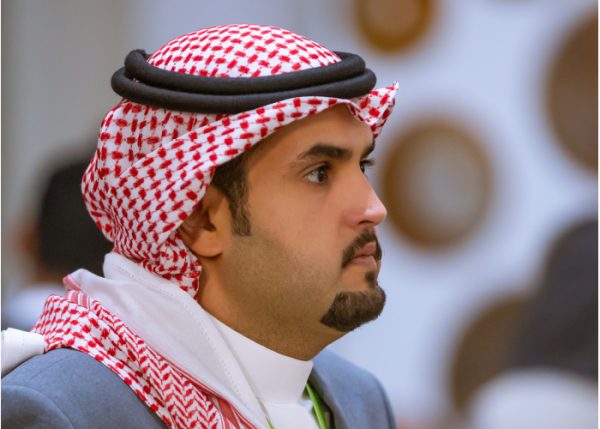
by Abdulelah Al Nahari, business development manager, Saudi Arabia, Fusion 5
I’ve been keenly watching the sheer inventiveness and creativity that the Covid-19 pandemic has inspired. Amidst the chaos of quarantines, lockdowns, the isolation of travel restrictions and the anguish of children going to school remotely, I would never have imagined witnessing the birth of a digital revolution in the least likely places. We’ve seen a dramatic digital awakening from mom-and-pop shops to traditional government departments, and ironically we have a virus to thank for fast-tracking it.
Are you in Riyadh on June 14th? Do you want to meet the movers and shakers in Saudi media, marketing and advertising? Would you like the latest information and insights into the industry in KSA? Then join us for our first Campaign Saudi Briefing 2022: Vision and Ambition. Click here to learn more and register.
Saudi Arabia has been on the ‘digital wokeness’ watchlist of ICT pundits since the announcement of LEAP, a mega tech event, back in 2019. Saudi Arabia’s ICT sector is the region’s largest; it was ranked among the top 15 globally in 2019.
With the backdrop of the Kingdom’s Vision 2030 programme, the Government of Saudi Arabia is very serious about transforming its technology ecosystem to support its ambitious plans. Currently in its third stage, the National Strategy for Digital Transformation, which began in 2006, aims to make smart government a reality by 2024 – and it is getting there fast. In a 2021 report, Saudi Arabia was ranked second for digital competitiveness among G20 countries, right after China. The new edition of the Digital Riser Report found that countries at the top of the list are employing strong public-private partnerships to promote entrepreneurship and innovation. Smart governance will be pivotal in supporting planned giga projects like the Amaala, The Red Sea Project, Qiddiya and a smart city strategy that will transform municipal and residential sector services into digital services through smart technologies and IoT connectivity.
New media-buying challenges
The rapid evolution of the internet has fundamentally changed how Saudis interact with media. The vast majority of Saudi’s Generation Z have moved away from traditional media channels in favour of digital platforms. A well-known fact among marketers is that Saudi Arabia has a young demographic; 40 percent of the population is 24 years old or younger. It is reported that Saudis spend about 9 hours a day on digital and social media. Brand custodians understand that this is a go-digital-or-die situation.
A recent Kearny report stated that the media sector has the potential to grow at compound annual growth rate of about 11 percent and reach SAR 34 billion. For advertisers and media agencies that serve the Saudi Arabian market, measuring, analysing, and interpreting a brand’s impact on digital platforms has become more critical than ever. To gratify their audiences and deliver meaningful connections, clients want to make decisions based on reliable data-led insights and see a competitive return on
their investment.
Our local clients have a rudimentary understanding of media planning, and while they tend to be technical, some media companies offer their customers specialised media training sessions. Shifting the focus to integrating channel-specific media efforts into a holistic plan is the real challenge for media agencies.
It may be evident by now that there is a tremendous opportunity for agencies to further centralise the work for Saudi Arabia inside the Kingdom. Media agencies with boots on the ground have the advantage of collecting reliable data from various sources to support business intelligence decisions: well-crafted insights based on bespoke attribution models that measure the impact of each channel on the overall conversion probability. A successful media agency in Saudi Arabia will be required to have an integrated team with digital and mainstream media competence supported by a highly specialised digital performance unit.
In the not-so-distant past, clients would bundle media purchases with specific events and request the desired number of views or impressions per product advertised. Post-pandemic, alongside new digital habits and experiences acquired over the past two years, consumers are also back to enjoying both out-of-home experiences and traditional media consumption. As the media buying industry evolves, clients will need expert analysis, strategic advice and a consultative approach to client servicing.
Recent RFPs have included Saudi-specific media buying plans and tailored strategic approaches informed by savvy local understanding. Media agencies must have diverse skills and deep local knowledge to capitalise on media’s shift from linear distribution to a pan-global digital dialogue. Media agencies must be equipped to jump on board Saudi’s digitisation fast train and be prepared to provide services to both the private and government sectors. Clients will require local expertise to produce a best-in-class, locally relevant fulfilment of RFPs
Fusion5 has been providing clients in Saudi Arabia a best-in-class service since 2017. The establishment of offices in Riyadh affirms our commitment to collaborate with local content creators, develop commercial ties and fulfil our responsibility to the Saudi community to hire and train local talent. We are very excited about the opportunity to contribute to Saudi Arabia’s growing global presence and look forward to building our clientele and making new connections.









